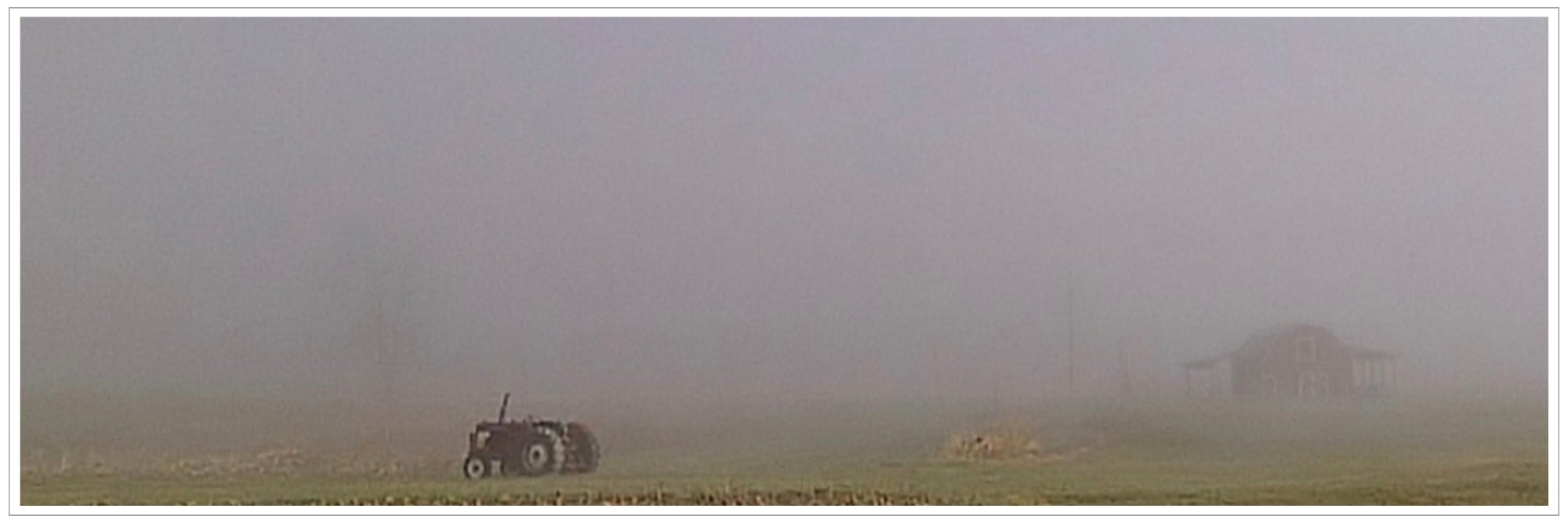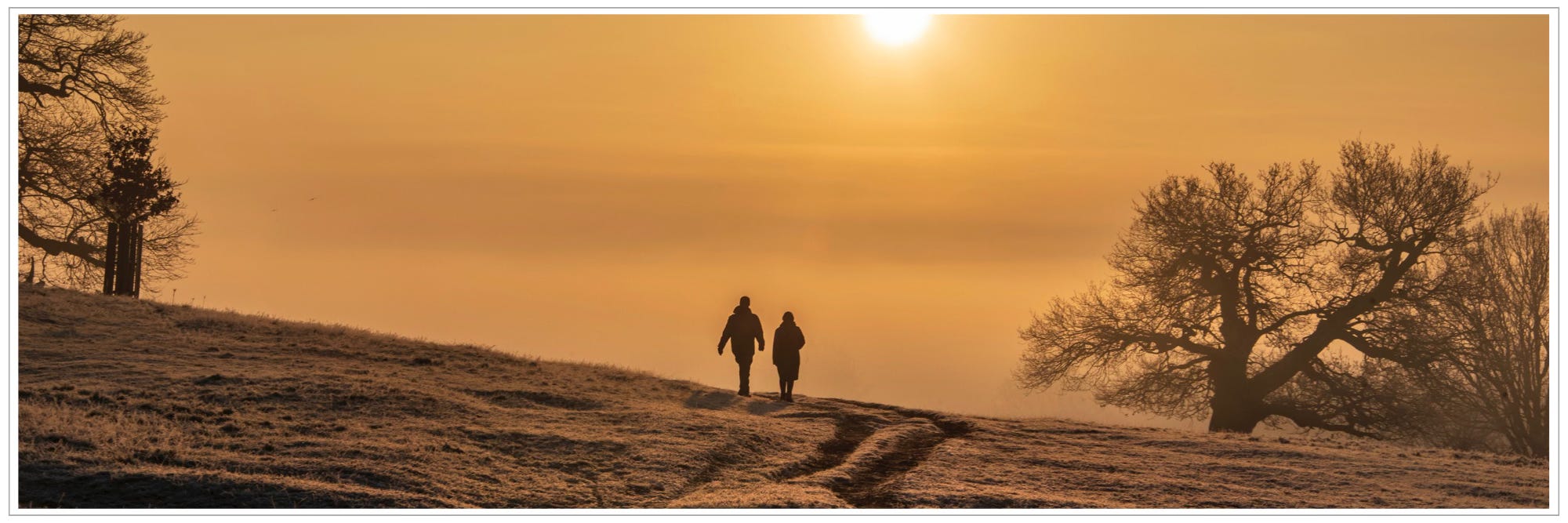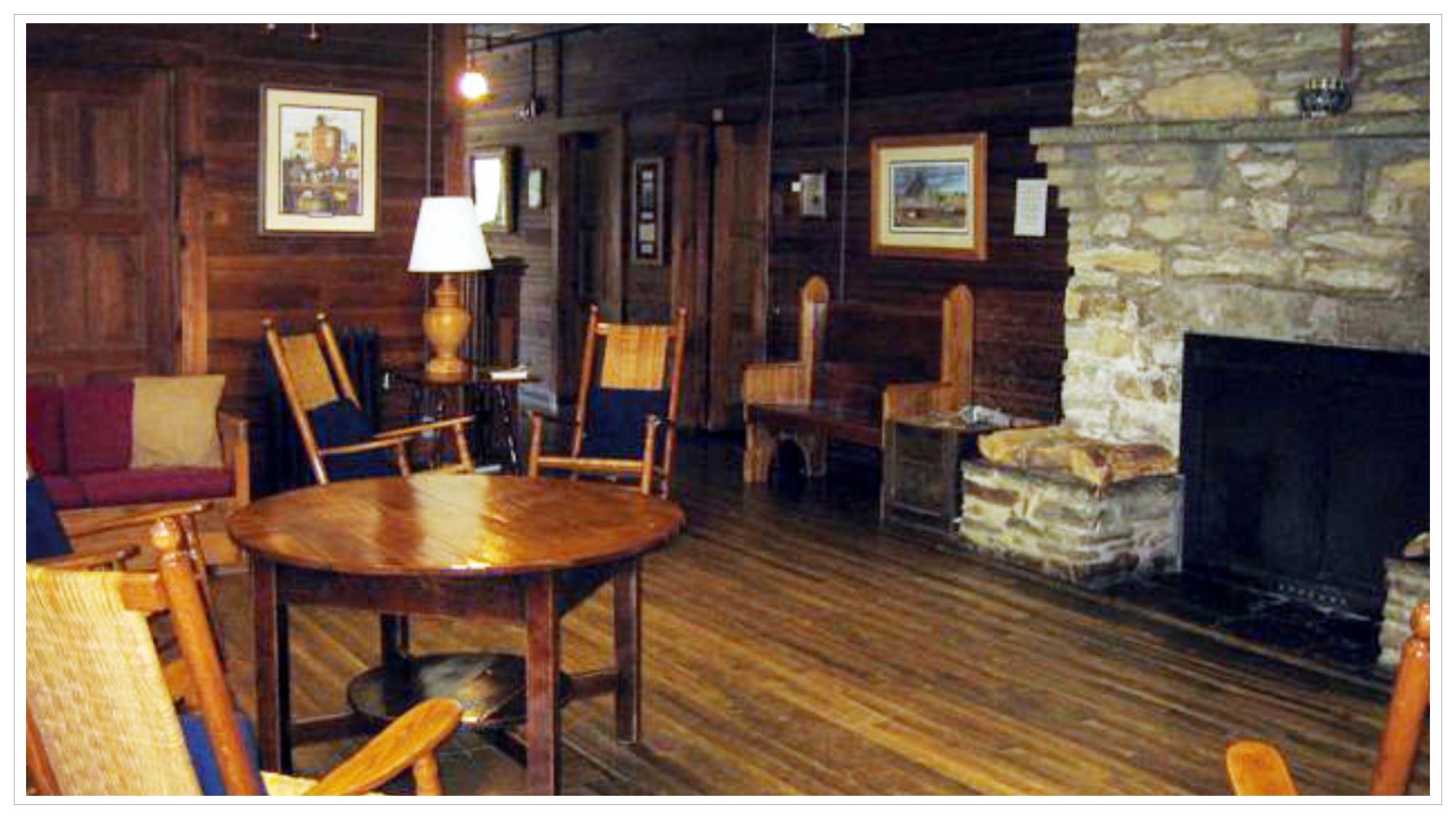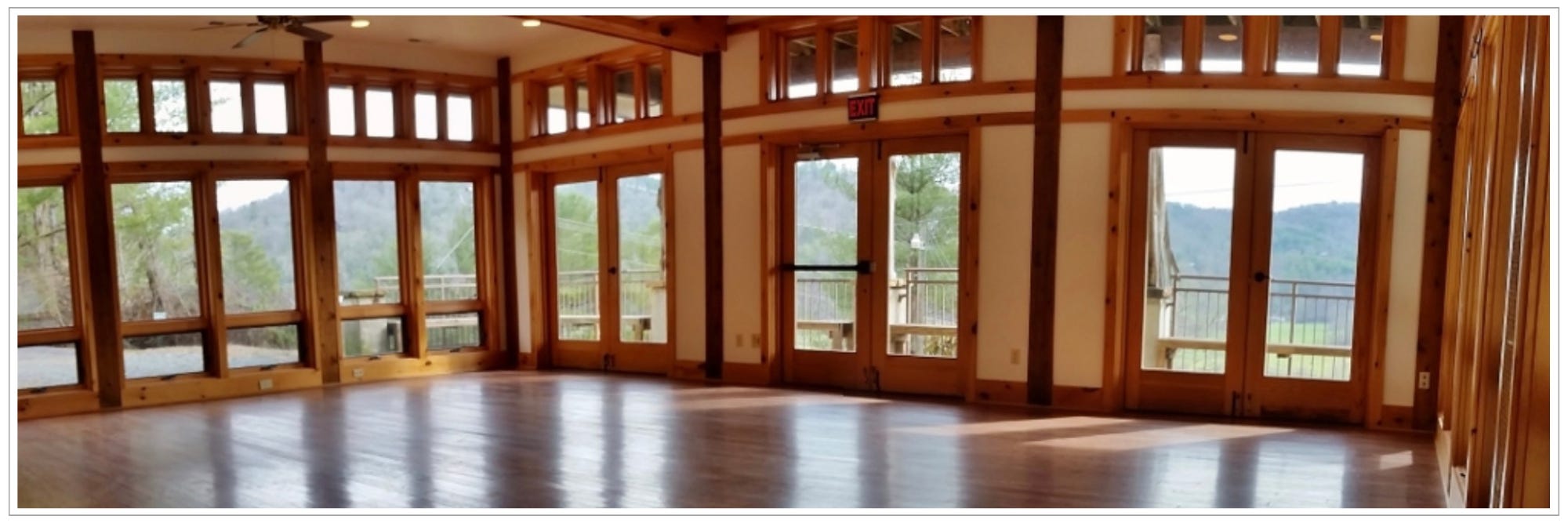Dear Friends and Family,
I finished my doctoral work when I was fifty-one, living in a quirky shotgun apartment in a rickety turn-of-the-century house just a stone’s throw, as they say, from downtown Asheville. Two of my sons had not yet taken their soon-to-be leave from home. Their older brother had, but not too far, just a couple of blocks away and a short walk to college.
It was a time, for me, of reading to the point of overflowing the carrying capacity of the mind. It was hours-long walks beating down the path along Reed’s Creek and up and down the rolling hills at the old cemetery where Thomas Wolfe is buried and where I go to pray to my departed mother when I’m trying to find my way. It was a time of staring at an empty page in the unforgiving hours when the world sleeps and words, when they come, come by the mercy of silence itself. And it was suppers cooked up with the mirth of young men, and dishes piled wobbly in a kitchen as quirky and rickety and tiny as this place we called home. What I mean is, it was a magical time.
In early December of that time, when by now the leaves had all dropped and the air had already taken on the cloak of winter, I submitted the final draft of the doctoral thesis to Connie, my advisor, who had some years prior handed me a small book, not for my research. I read the title and was sure I would read the book. But I had not gotten around to it.
The day after I submitted that draft to Connie—there were many before that one—I did what any person would do who had not in years had a liberated moment to not read from the pile of books that had not stopped growing. I read another book. I read that book. By then, it had long since been shoved into the dark corner on the bottom of a bookshelf where the light never falls. I searched for it.
Philosopher Jacob Needleman’s Time and the Soul, published at the turn of this century, begins this way:
This book is addressed to anyone who is starved for time. That is, it is addressed to everyone.1
Needleman was concerned that measured time robs us of human meaning and presence to the eternal mystery of being human. He lamented a world ever more driven by haste, too much to do, too many commitments, not enough energy to fulfill the day’s tasks, and the abject poverty to feel the aliveness of our own being.
And he urged that while wisdom traditions may show us the way back toward our soul—that mysterious primordial life force in you and me, which some call psyche—he was quick to caution that the words of wisdom are not enough. The way to our born essence is not found in a book, a webpage, or by the advice of another. It is found, he insists, “because it is looking for us even more than we are searching for it.”2
Our born essence is found because it finds us in precious ripe moments along the path of our life, and often when it seems we’ve lost our way. When those moments come, we can be sure we have come to “cosmic reverie,” a numinous time out of time.3
What stirs about Needleman’s words in addition to the fact that we can hear Rumi in them is that they also echo Swiss philosopher Jean Gebser, whom I cite often in these letters. Gebser wrote in the mid-twentieth century that the (supposed) forthcoming integral mode of being in the human will transform the human relationship with time. It will transform the human relationship with life itself by calling forth from the wild depths of an eternal mystery already seeking to find the will in us.
Today’s letter is an invitation addressed to anyone who yearns to get around to it, anyone seeking to dust off that book searching for you at the far corner of the bookshelf of this life. That is, it is an invitation addressed to everyone.
JOIN ME.
Entering Unknowing: Inner Pilgrimage for a Time between Worlds
December 4–8, 2024
Valle Crucis Conference Center, deeply rooted on sacred ground Banner Elk, NC.
The soul does not live on the edge of time. It finds its rest in the universe imagined by reverie. Gaston Bachelard, Poetics of Reverie (15)
Why This Gathering? Why Now?
We live in complex times, a time “between worlds.”4 In the imaginal cells of the collective human psyche, a profound shift seems to be cocooning. We are called to the wild depths of soul.
We live complex lives. From time to time, we lose our bearings—in joy, in sorrow, in love and the loss of love, illness and injury, the unraveling of life as we know it.
And we live a special mode of life, a mode that burns with wonder about our very existence, is awed by the majesty of the unfolding universe, and marvels at the mystery of it all.
Deep inside each of us, there is a silent yearning to become intimate with what we intuit but cannot see, our deepest inner mystery and human essence.
The Pathless Path of Pilgrimage
The ancient, sacred tradition of pilgrimage invokes what words alone won’t offer: an embodied pathless path of nurturing the spiritual depths of our shared human becoming.5
On pilgrimage, we belong to the body. We step into time beyond time. In this quality of reverie, the problem-solving mind comes to rest; we leave behind a known world to come to a world unknown to our conditioned ways. We walk home to who we are.
The pilgrim’s way is that of unknowing our customary bearings by walking a path that has no path. This pathless path is lived in and through the body in communion with the earth. It is a path of self-realization.
This gathering will be a co-exploration of the inner way of the pilgrim to belong to the depths of our being and to co-wonder about our shared human becoming in these unique and sacred times.
We will invoke a four-day pilgrimage (in place), inviting unknowing through meditation/centering prayer and shared readings and reflections to explore modes of being on the pathless path, gentle practices that quiet the mind and enliven the body–heart, Earth walks*, quiet periods of rest, and conversation by the fire at the Inn at day’s end.
The setting could not be more inspired and inspiring for our time beyond time.
Our gathering will take place at Valle Crucis Retreat Center in Banner Elk, NC. The Inn is an old schoolhouse deep in the heart of the southern Appalachian mountains on 450 acres of sacred ground, some of the most ancient mountains on earth and home of the Cherokee. There are miles and miles of walking trails for all levels. During our time together, we will field-trip (by car) up to the peak of the grounds to St. Anthony’s Chapel where we will enter and be bathed in a most exquisite, palpable, protected, and sacred silence. It brought me to tears when I entered.
All are welcome.
*Earth walks are not required. There are many ways to commune with the natural world in this setting.
Cost:
Accommodations Fee:
(Single) Room + Meals + Transportation to and from Asheville airport = $456/person
This Gathering is offered on a dana basis.
Dana is a Pali word for “generosity” or “giving freely.” In the spirit of the pilgrim, I cannot “charge” for this experience. What I can do is freely give my preparation and soul and invite the presence and generosity of you as participants. Your presence makes this gathering possible, and there will be an opportunity to offer contributions at the end.
Registration
Doreen Tanenbaum has generously offered to be Retreat Coordinator. Some of you have met Doreen at the first of month Gatherings in Silence.
Please email her at tanenbaumd@gmail.com to register. She will assist you with details to coordinate your arrival, transportation, departure, meal preferences, and any details that will make your experience more comfortable and a time away from time.
Please email me with any questions you may have about the content, format, and rhythm of the retreat: reneeeliphd@gmail.com
Dear friends, if there is in you a quickening when you imagine exploring the inner way of the pilgrim, please give every consideration to joining us in December.
With love,
Renée
Jacob Needleman, Time and the Soul, Where Has All the Meaningful Time Gone . . . and How to Get It Back (Doubleday: 1998), p. vii.
Ibid., p. 150.
Gaston Bachelard, Poetics of Reverie: Childhood, Language, and the Cosmos, trans. Daniel Russell (Boston, Beacon: 1961), p. 13.
As I have offered in a few of these letters, an increasingly common phrase, “between worlds” intimates shifts not only in perspective but more fundamentally, at the level of perception and modes of being.
J. Krishnamurti maintained that “truth is a pathless land.” James Finley speaks of a “pathless path” in his talks on The Way of the Pilgrim. The image can be found as far back as the Taoist “watercourse way” in Lao Tzu’s Tao Te Ching.










What an absolutely gorgeous offering! I have no doubt it will be wonder-full and magical in absolutely every way. Anyone in attendance will be wholly changed forever and for the better, of that I am certain. ❤️
Having enjoyed the pleasure of accompanying you in pilgrimage vicariously here on ‘Beyond the Comfort Zone’, I love what your offering, a “Pilgrimage in Place”. I’ve reminisced about the moments I have gathered in groups organized around sacred remembering and becoming. It strikes me now, that since Covid and the ‘social virus’ I have isolated.
That isolation felt important and necessary for me. But it has its limits. I’m nostalgic for being in those rarefied fields and the atmosphere of shared silent reverie. I hope I can join you. If not, I thank you for your enaction.